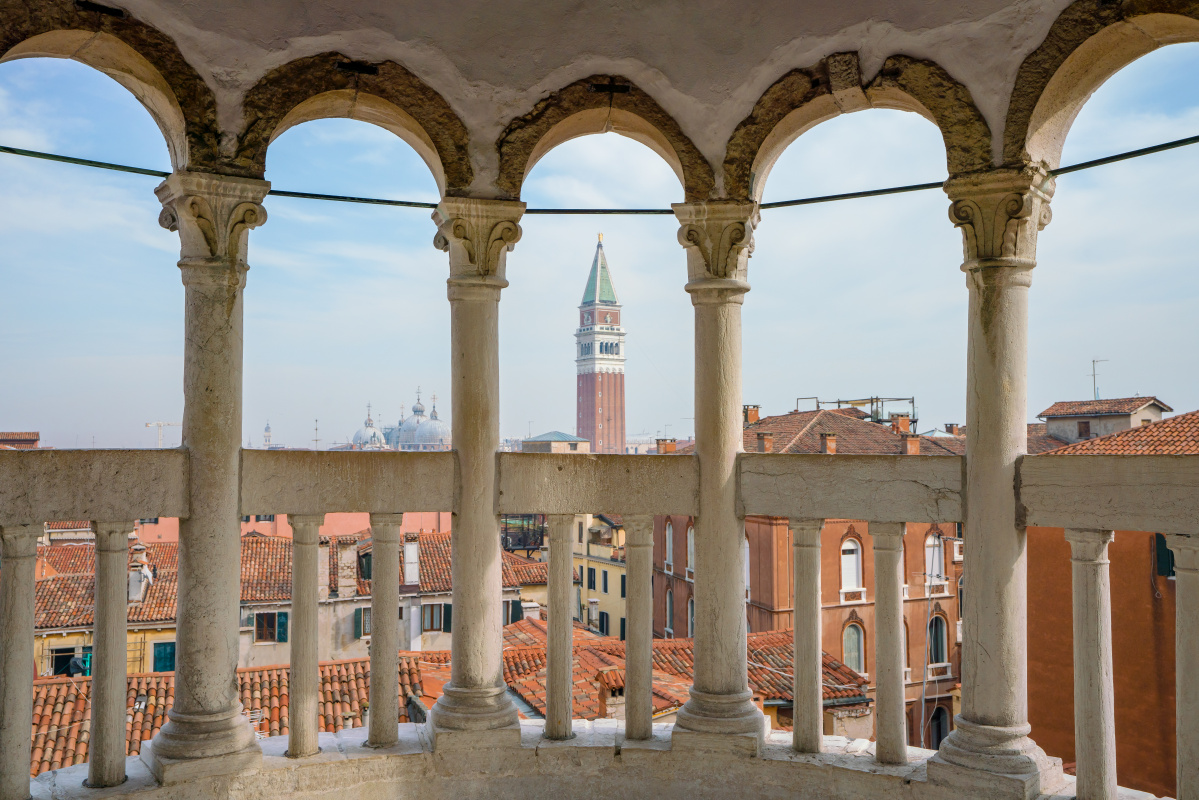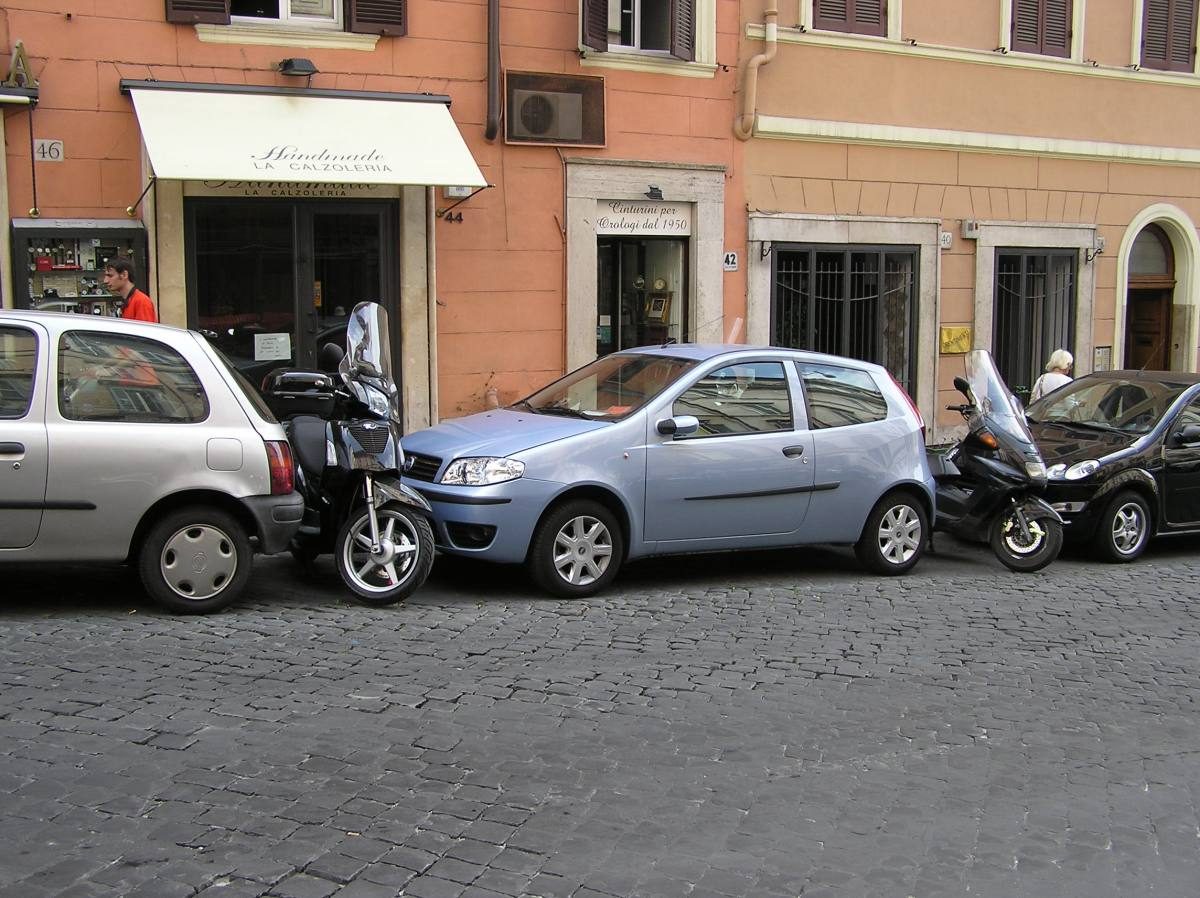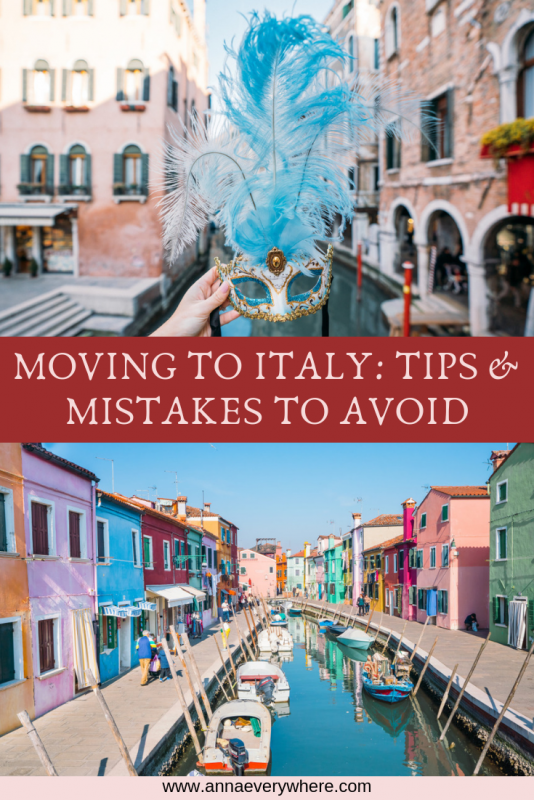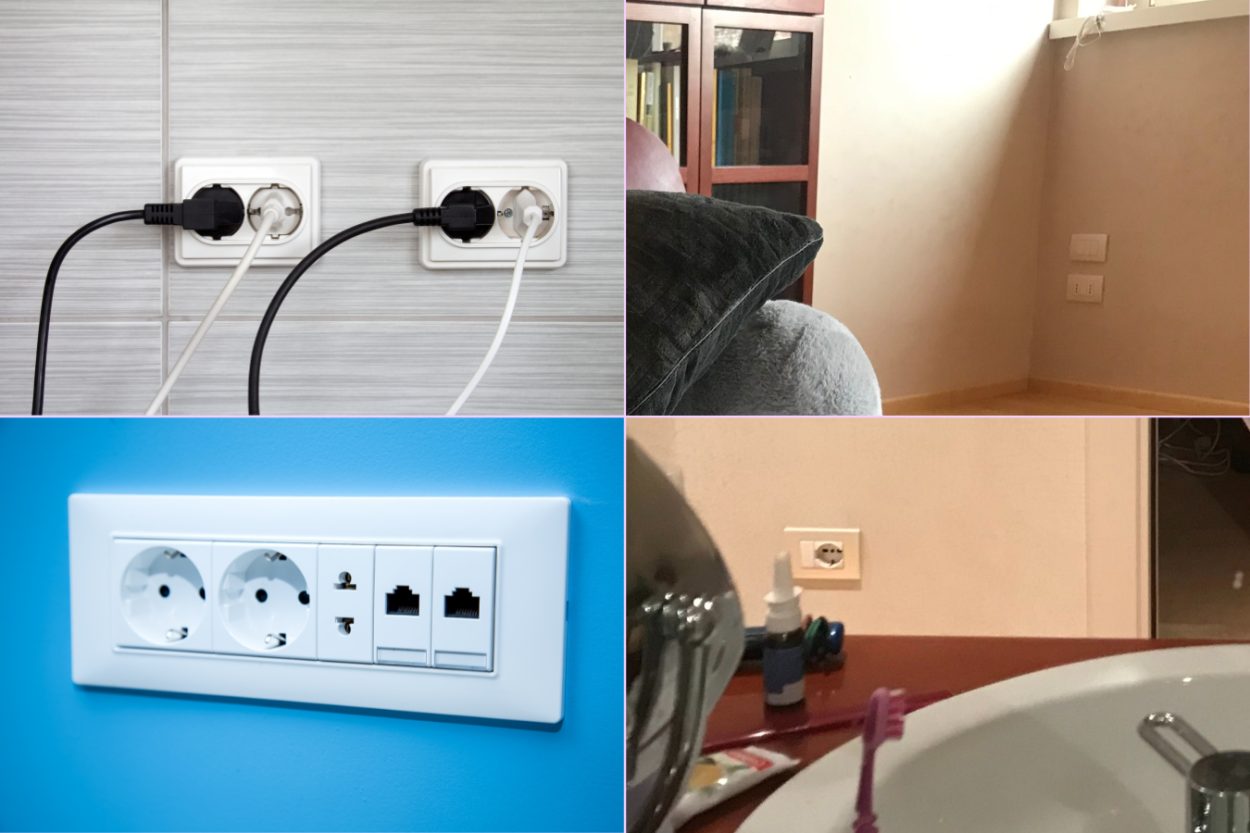Moving to Italy: Tips & Mistakes to Avoid
While moving to Italy might be a great adventure, it also requires a lot of patience and bureaucratic issues to solve. Italians might joke that their system is slow and inefficient, but it’s really no different from other European countries in my experience living in a few other countries in Europe.
Even though I’m originally from Europe I had never really lived in continental Europe as an adult until I moved to the Netherlands. My business has been set in the US and with no record from Europe. My husband is American but also holds an EU passport, but again – not even a past address from Europe. Basically, we moved to Italy as if I was moving to Italy as an American.
Here are my tips on moving to Italy. Make sure to click on other linked articles within the text if you want to learn more.
Why Move to Italy?
Simply because why not. As digital nomads we can live and work anywhere we want and we both have EU passports. My husband and I wanted a change for a bit and we opted for a spot somewhere in Europe.
We were done with doing visa runs in Asia pretending we live there, and shipping issues in Latin America didn’t help our businesses before (even though we now live in Mexico on and off).
The quality of life in Europe is higher than in the US, but living is more minimalistic. Healthcare is semi-free (more on this later), the Internet could be fast, and things are generally more affordable.
Italy is also very pet and baby-friendly. You can bring your pet everywhere including restaurants and daycare is 1/3 of the US prices.
We chose Italy because we couldn’t agree on any other spot – that’s the truth. As my husband wants nicely looking mountains nearby and I can’t live in a small mountain town, we chose Verona as it’s the closest city to the mountains that has an airport and good train connections to other spots.
We definitely haven’t left the US forever. Our businesses are there, half of the family is there, and we’ll be back at some point. But, we also never wanted to be those digital nomads that life everywhere on a tourist visa.
How to Move to Italy as an American
Visas and Residence Permits for Italy
Unfortunately, as an American or any other non-EU citizen, you can’t just pick up and move to Italy freely without arranging a lot of things, even with a remote job for longer than 90 days. In fact, you cannot even do this as an EU citizen.
You need to make sure you know everything about:
- Visa Options for Americans Moving to Italy
- The Cost of Moving to Italy as an American
- The Cost of Living in Italy
- Where to Live in Italy
- Arranging Your Move
The Best Visa Options to Move to Italy from the USA
Italy is notorious for being quite difficult with visas and processes are lengthy and frustrating. You can definitely still follow your dreams, but you must have a lot of patience and time.
1. The Schengen Visa for up to 90 days
If you want to try Italy out (as you should before moving to any country), you can just live in Italy for 3 months. It’s called a Schengen Visa and Americans don’t need to apply for it, but other nationalities do.
Check this site to see if you are from one of the 107 countries that are required to apply for a Schengen Visa.
You can enjoy Italy and other European countries for 90 days every 180 days (so visa hopping for a week or two isn’t possible because especially since the pandemic border and in-country controls are stricter).
2. The Self-Employment Italy Visa (Lavoro Autonomo)
The most searched for option is Lavoro Autonomo visa. It’s the best option for Digital Nomads wanting to move to Italy for longer than 90 days.
Basically, you need your own business or freelance contracts and you cannot be hired by an Italian company, therefore they can’t be sponsored by a company to get their visa.
What you need:
- Prearranged accommodation in Italy
- Police Clearance (Nulla Osta) from Italy
- Documents & Proof of Self-Employment Activity
- 8500 EUR of savings to be exempt from healthcare contribution
This visa is limited per year and there is only a certain number of people that can apply each year. Don’t get frustrated – the US visas for foreigners work the same way, so I’m aware it’s a frustrating process.
You can totally apply for this visa alone, without help, but you need Police Clearance from police in Italy, so it’s safe to say that unless you can travel to Italy and speak Italian you might want to hire a professional to help you get it. Also, you might consider another visa option.
3. Elective Residency Italy Visa (Residenza Elettiva)
An elective residency visa is easier to obtain than a self-employment visa. In fact, this is the visa my husband and I tried to obtain after the fiasco we encountered with our EU passports (keep reading the post).
You need:
- Passive Income of 31,000 EUR per year (+ 20% for a spouse and 5% for a child)
- Accommodation prearranged for a Year
- Health Insurance
The visa is good for retirees but can be used by anyone. Passive income can come from rental units, pensions, 401ks, investments, blogs, and so on.
4. The Start-up Visa for Italy
If you have some money and the idea to invest in a company in Italy you could qualify for a start-up visa.
Requirements for the Start-Up Visa for Italy:
- Submit Innovative Company Idea
- Have 50,000 Euros to Invest in that Company (After you receive the visa)
- Register your new company in Italy
- Be appointed as the sole director of your company
However, I don’t recommend doing this as you might be better off registering a company in Estonia or even back in the US and using Elective Residency Visa.
There are also Investor Visas and Entrepreneur Visas, but both require an insane amount of contributions (ranging between half a million to 2 million), so it’s safe to say that it’s not the realistic option for most people.
Once you get a visa and arrive in Italy you’re still not done. You will now need to go through a process of arranging your residency (it’s different than a visa!).
The process is described in below under “moving to Italy from another EU country”.
All American expats living in Italy have to get permesso di soggiorno – it’s a residency card. It takes more than 3 months to receive it and requires slightly more paperwork, but it’s surely manageable. Here’s more information about getting your first permesso.
For citizens coming from outside the EU:
Italy introduced a points-based system for new residents. Once you receive your permesso you gain or lose points and if don’t have enough points at the end your residency will be taken from you.
To start with, you need to attend 2 all-day courses on adapting including some very interesting things like “don’t make a fire in your living room”. Then you need to pass Italian language certificate, you can get points for going to university, etc. You may lose points for getting a speeding ticket or other things.
Basically, it’s not a “once you get it it’s yours” kind of residence permit.
Process of Moving to Italy from Another EU Country
My husband and I were both lucky to have EU passports, so in our case, things were way easier. Within 90 days of arrival, we’re required to register our residency in Italy, but more importantly, we had to get a Codice Fiscale straight away.
The first process was very easy, we just stepped into Agenzia de Ingresso, asked for Codice Fiscale, and within 15 minutes we got one.
Nobody speaks English there, so you need semi-broken Italian or the help of a translator. You’ll need it to conduct almost any personal business in Italy, including renting a home, opening a bank account, getting a phone, etc.
Finding a house was the easy part (read more about it in “renting an apartment in Italy”), but a costly one.
In order to register for our residency, we had to have a contract for long-term housing. AirBnB won’t cut it, so you need to find an apartment first before even thinking of registration. However, there’s no rush.
After you register your house contract make an appointment at the anagrafe. For these large cities, you can make an appointment online at tupassi.it .
You need to bring your passport, completed Dichiarazione di Residenza, your marriage certificate plus an Italian translation (if applying together), a registered housing contract, and a work contract or proof of income if you are self-employed. Bring photocopies of each document.
Our Personal Issues: This is where it got tricky for us and sounded good in theory.
The anagrafe in Verona refused to give us residency since our companies are US-based and we don’t possess an Italian VAT number (partita IVA). We were given a choice of either moving our business to Italy which makes no logistical sense to me or registering at the chamber of commerce as freelancers and then having to prove our income from the EU from that, which also makes no sense because this isn’t what we do.
That said, we ended up not being official residents, which isn’t actually a big deal if you’re healthy, don’t want to buy a car, or can fly home if issues arise – we just have to pay a bit more for the house bills.
Our Friends Issues: Our three sets of friends also encountered issues with registration in Bologna, Rome and Venice respectively (spousal visas and elective residency visas).
The problem in their case was that various US marriage certificates don’t indicate a new last name on it – it just states your maiden name and then you go to the SS office to change your name.
The Italian registry required a document with an official name change that the US wouldn’t issue because it doesn’t exist. Therefore, they weren’t able to register.
They had to go through the commune in Sicily (where his family was from and where his passport was issued) to register and reissue a marriage certificate and exchange her American passport to indicate an old name. It took months to straighten out and during that time she had to travel back and forth between the US and Italy because her Schengen visa was expiring.
Read More on Our Actual Horror Story of Moving to Italy
If you manage to successfully register though, you’ll have to wait 45 days. An official will come to visit the address to confirm that you do reside there.
If you do not answer the door when they arrive unannounced, they will leave a card with a date and time to come in person to certify that your address is correct.
As long as this is done within 45 days of your application, you can now return to the anagrafe to pick up your residency certificate.

Importing Your Things and Pets to Italy
Italian customs will grant you duty-free entry of your household effects, as long as they are imported within six months of you moving to Italy and registering as a resident.
But in general, it’s not worth the hassle and money to bring your furniture and possessions all the way to Italy from the USA.
We brought a few suitcases and shipped some boxes. The latter required filing a lot of customs forms, but we ended up paying nothing in taxes as EU citizens.
After researching a lot we decided not to import the car. The car would have had to get inspected and adjusted to European standards, and then upon arrival registered in Italy. You can read some horror stories of people not being able to register their car at all, so we just sold ours.
Importing our fluffy cat was actually the easiest, and you can read more about it here. However, you can only get a European passport for your pet once you become a resident or receive your permesso di sogiorno (unless you have an Italian passport because apparently, your pet’s passport must match yours).
Since we had the documents from the US, we were able to fly him with us to Poland for Christmas within 3 months of arrival in Europe and then get him a pet passport in Poland.

Renting an Apartment in Italy
Expect to pay at least €900 for a small apartment in a bigger city. You can rent a 140m2 apartment right in the city center, with 2 bedrooms, 2 bathrooms, and a giant living room for less than 2000 EUR a month though, all furnished.
For us, it’s a deal since it’s surely lower than California prices, but don’t be fooled – bills would arrive and they’re not small. We had to pay about 550 EUR for 3 months for gas & electricity, and 120 EUR quarterly for trash “collection” (because you still have to drag it yourself to the nearest dumpster).
If you’re thinking of moving to Italy to have a baby, keep in mind that baby things are not only more expensive in Italy than in the US, but also lacking in choices.
*
While getting an Italian villa in Tuscany or Positano might sound tempting, especially since towns where houses are being offered for €1, think twice before doing so. If you need to work there are no work opportunities there and working online might be tough since the internet connection isn’t best in the countryside.
We searched for our apartment directly on Immobiliare when we were still in the US. We knew more or less which areas we’d consider and saw what was available.
Generally speaking, if you’re looking for an apartment that’s over 1200 per month it won’t get taken straight away. We saw our 3 potential apartments listed a month before moving and went to rental agencies upon arrival in Verona.
It turned out that out of 3 places we considered one was rented out already, the second was way smaller in person than in pictures, and we liked the third one and ended up getting it.
In Verona, we went with Technocasa agency. Everyone there was very friendly and helpful with setting up the Internet, registration, and other bills.
In Italy, the renter has many rights in theory but they almost always keep your deposit. It’s illegal to put in the contract that no pets or babies are allowed in the apartment (charging a pet rent is illegal).
If you’re renting through an agency both you and the landlord need to pay an agency fee. I don’t know much about the landlord’s side, but from a renter’s side the fee is either a 1-month rent or 10% of your yearly rent (which is about 1,5-month rent). I won’t lie, it’s a lot of money that you need to pay upfront, especially considering that most places require a deposit worth 3-months of your rent.
Update: both the agency and landlord decided to scam us in the end. They never returned our 3-month rent deposit and refused to talk to us. In fact, they even tried to get more money from us. Two of our friends had the same exact situation, so my advice: stop paying rent 2-3 months before you move out.
In Italy you usually can’t rent an apartment for just a year, it’s very rare. In most cases, contracts are either 3+2 or 4+4, which means that your contract is for 3 or 4 years and you can extend it for another 2 or 4 years without any issues. That also means that your landlord can’t raise the price for the duration of the contract. Normally you have a 6 months notice, but you can talk it down to 3 or 4 months sometimes.
Once you sign a proper contract the landlord or agency has 30 days to register the contract with the tax authorities, and they should provide you with a copy of the registration once completed.
Cost of Living in Italy
Everyone always tells you that the cost of living will be much lower than where you moved from in the USA. It’s not entirely true, because they often compare big cities with big Italian cities. Sure, even Rome will be cheaper than Los Angeles or New York City if you have an American salary…
But if you compare let’s say a suburb of Texas or even North Carolina to Italian cities, then the cost of living in Italy will be higher.
Things to Do After Moving to Italy
Locate Your Nearest Post Office
In Italy, many things are done at the post office. You pay bills at the post office, you can buy bank cards at the post office, you get a permesso di soggiorno kit there, and you apply for the health system there too.
Naturally, the post office is always packed. It doesn’t matter what time of day you go, but make sure you go before 2 PM because that is when the post offices in Italy close.
How to Open a Bank Account in Italy
To open a bank account you need a residency first. But, some things require you to have a working card, such as setting up Internet connection. In our case one of our US credit cards worked to set Vodafone internet, so that wasn’t an issue.
If your foreign card doesn’t work you can go to the post office and buy a pre-paid Italian debit card to use before you set up your bank account.
How to Get a Health Insurance in Italy
Healthcare in Italy is technically free. I’m saying technically because there are some hoops you have to jump through to get it and you still have to pay for it – whether it’s your employer or yourself when self-employed. It’s a common misconception that health insurance is free in Europe. It’s not.
While you often have to wait a while to get an appointment with a specialist, you can always go private.
For instance, to see a good obstetrician including a full-on ultrasound I only paid 150 Euros and even got a second appointment for free, because the doctor wanted to check on something the following week. Any remaining appointments with the same doctor was only 85 euros.
In the US for the same thing, I was quoted about $340 per appointment alone an extra $150 for an ultrasound.
However, not everything can be done privately in Italy – for instance – giving birth or complicated surgeries. Also, certain medicines cannot be prescribed in Italy – privately or publicly, even if you’re already on it and have an existing prescription.
Also, I ended up visiting a private pediatrician once and would not recommend it. The pediatrician straight up told me that she can only look at the baby because she’s not actually equipped with anything, so for anything serious I would need to go to a regular pediatrician at the hospital and that cannot be done privately again.
Our Issues: Before moving here we’ve been told that in Italy everyone is entitled to free emergency care regardless of their status. Well, this has proven to be iffy depending on the situation and hospitals.
As EU citizens we should be getting free emergency care, but that’s only with an EU Health Card from another country. Again, my friend in the same situation (without an EU health card) received emergency care for her and her kids for free on multiple occasions, so I guess it must depend on your luck.
We were also told that unlike what multiple doctors informed us before, we would be charged for labor and delivery of the baby even in case of emergency.
Once you’re a resident, after paying the fee, you can register with their health system for other health appointments. Here’s how to register for the SSN – Italian Health system.

Setting Up Internet in Italy
I must admit that I was dreading setting up Internet in Italy and prepared for the worst. If you go online you can read about those people waiting to get a router set-up for a month or longer. This was definitely not my experience.
We stepped into Vodafone office, got our SIM cards without any issues. We ended up getting a prepaid option, as they had a better offer – 10 Euros per month for 8 GB of Internet.
Then I arranged the Internet contract. Using our Codice Fiscale, passport and US credit card that somehow worked, we got a 35 Euros a month contract with 1 Gigabit Internet. It would have been 30 EUR if we didn’t ask for the super-fast connection. The next day I received a text message with terms and conditions and information that someone will call me to schedule a technician’s visit.
We also received 15 GB per day on our SIM cards to tether our laptops while we wait for everything to get installed, which worked great.
In reality, we were never able to get the 1 Gigabit Internet. Frankly, we weren’t even able to get 100 Mbps, because the building has old cables and the internet company cannot actually install it in our building.
Getting an Italian Driver’s License
Unless you come from a country that has a reciprocal agreement with Italy, which is basically just the EU these days, after one year of being a resident in Italy you will need to take the Italian driving test.
That means that if you got your license in the US you’ll need to retake the test again, the same way Europeans have to retake the test in the US despite having a license from Europe.
You can drive on your old license for one year (from when you requested residency at the town hall), and after that, it’ll officially become invalid.
Since we couldn’t get residency we can use our licenses and while this might work with a rental car, if you want or need to buy your own vehicle this won’t be an option.
The test is naturally only available in Italian, so you need to have a proper understanding of Italian to pass it. However, you can purchase a practice book with questions and learn them.
Important: Get yourself an international driver’s permit. They’ve started to charge fines to foreign non-EU tourists for using their license instead of an international one.
When you’re moving to Italy, but still waiting for your permesso di soggiorno, you’re still considered a tourist so you might get fined. Don’t tell me I didn’t warn you.
Read more on renting a car in Italy.

How to Improve Your Italian
You can’t move to Italy and not speak Italian. You just can’t and shouldn’t, because fewer people speak English here than you think.
Navigating through bureaucracy might seem frustrating in English, then try doing it in a language you can’t understand. My husband quite often can’t even pick up a delivery from downstairs because they’re trying to explain to him to sign things or pay some taxes, and obviously it cannot be done in English.
If you think that you’ll learn by using Duolingo or Rosetta Stone, then think again. I don’t know a single person who actually learned a language from using apps (learned, not claimed online that they did).
Read More: How to Learn a Language Fast

Mistakes Not To Make When Moving To Italy
Moving In the Summer
Everyone and their mother goes to Italy in the summer, so naturally, all the AirBnBs and hotels are sold out way in advance. That said, don’t move in the summer when cities are full of tourists.
Not Learning Any Italian
Before you even think of moving to Italy you need to learn at least some Italian. Many people simply don’t speak English, especially in smaller towns, so don’t be surprised if you’ll be constantly frustrated that you don’t understand. You can’t demand people to adjust to you and speak English.
Needing to Receive Packages Regularly
As I do some product reviews I tend to order many things online, or at least I used to until I moved to Italy. After months of trying, I pretty much gave up on ordering anything, because it rarely arrives.
Italian postal services, DHL or other fast delivery options like GLS included, simply suck – delicately speaking. They’ll bring your packages sometimes if they feel like it, but it’s very common for a doorbell to ring and find a postman gone within a few seconds – basically pretending he attempted to deliver the package when in reality he never even brought it with him.
I had countless packages returned, after I received a ‘recipient not at home’ email when I was sitting by the door waiting for my things to arrive.
You could also chase after your packages by attempting to go to different post offices, but if it’s handled by the DHL or GLS then you need to make it to their warehouse within 48 hours and as it’s in the middle of nowhere the taxi to get there often exceeds the price of something you ordered. It’s extremely frustrating.
Making Only Expat Friends
If you move to a foreign country it’s easy to stick with what’s familiar – English-speaking expat friends. I’ve seen this situation in the Netherlands and I see it in Italy, that quite often even after years of living in a country many expats have no local friends.
Making some Italian friends right away will really give you the inside track when it comes to living in Italy. Obviously, they know more about how things work than expats. Plus, you’ll improve your language skills.
Thinking You Can Use Your Bank Cards Everywhere
Italy legally needs to let you pay for things over 5 Euros by card, but it’s not always the case. Many businesses are still cash only and cash is preferred – for obvious reasons, owners lose a lot of money per year on card payments. In many instances, like setting up the Internet or paying for a toll you’ll need cash.
Demanding Italians to Adjust to Your Schedule
You’ll have to get used to shops being closed during lunchtime (around 1-3pm) and restaurants not being open until 7:30ish PM. Many restaurants operate a tourists’ dinner seating at 7 pm, and one for locals at 9 pm. From 6 pm to 8 pm you can only get an appertivo.









Ciao Anna
I want to ask if I need the permesso di sorgiorno in hand for Italian Customers to offer free tax for my shipment of domestic stuff from home country to Italy ? Or the receipt is good enough as I don’t know when I can receive the actual PDS.
Grazie
Hi! We had European passports so it was slightly different, but there was a certain amount of weeks (I’m not sure) after arrival that the items will be tax-free. The wait time for permesso is long (it even took a year in some cases), so I’d think you shouldn’t need it. Customs called us and we had to explain that we’re moving.
Ciao Anna,
My first time in Italy this May. I plan to post a small package to a friend from Rome (where I touch down) to Milan. What do you mean by the postal system being inefficient? Would you recommend a company please?
Grazie.
Jeanne
It’s slow and delivery sucks (quite often they don’t even bring packages when they deliver). Poste Italiane would still be best.
Anna—you’ve got THE most helpful intel about moving to Italy. Thank you! 🙂
Hi Anna,
Your article was really helpful, I’m planning to move to Italy for my Masters but I’m afraid what’s the situation there after Covid-19. It would be helpful if you could let know about this and the life of expat students if you have come across any students there.
Thank you 🙂
I don’t know where you’re from, but Italy officially didn’t cancel student visas and issuing them now under the exception of essential function. However, it doesn’t mean that you can actually get a visa since appointments are limited to critical situations only.
Nobody knows when corona will end but definitely not next year, that’s for sure. Italy is currently heading to another lockdown, so traveling is prohibited and so is going anywhere in some regions. Many people who could left, because there’s no point staying in Italy being locked at home all alone. Personally, I’d probably wait a year at least because if you want to go to Italy to actually experience the culture and life there you won’t be able to do so with the school being entirely online and without doing anything. Especially considering the fact that Italian bureaucracy really doesn’t do well online, so it’s a bit tricky.
Great advice, Anna.
Thank you so very much. I am hoping to move to Rome in 2022 and I think I have the big stuff taken care of (I am doing a retirement visa), but I have so many question about the smaller details. This helped a lot
I want to move to Italy with my family for a couple of years, but I don’t know the covid situation currently. Do you think 2022 autumn & 2023 will be as restricted as it has been before?
Things have been pretty much back to almost normal everywhere for a few months now.
Ciao – I am moving to Italy from US. I planned to keep my American phone (still need the phone number) and buy a new Italian phone once arriving. Would you recommend bringing a new phone purchased in the US with no SIM card and purchasing an Italian SIM card, or setting up a phone plan with a lasting phone number?
You need to register for an Italian phone plan either way, but the actual phone isn’t included so you might as well bring an unlocked phone from the US. Just keep in mind that if you’re planning on using any American phone number with a plan your proviledged of texting and internet won’t work after 30 or 60 days abroad depending on the provider. Your phone will still work, but you’ll be “blocked” from the plans for using abroad because it’s meant for short trips and not expats.
Ciao Anna,
Do you have a recommendation for a shipping company? I noticed that you mentioned you shipped some boxes over.
Grazie
We didn’t have much so just used SendMyBag.com (you can indeed send boxes with them as well).
Hi Anna, I thought US citizens could stay in Italy for 6 months without visa. Is that incorrect? Also can you rent a house short term for 3 or 6 months? Thanks
Nope, it’s only 3 months without visa in the EU. You can rent a house but it’s more like an AirBnB type of deal, normal contracts are long term only.